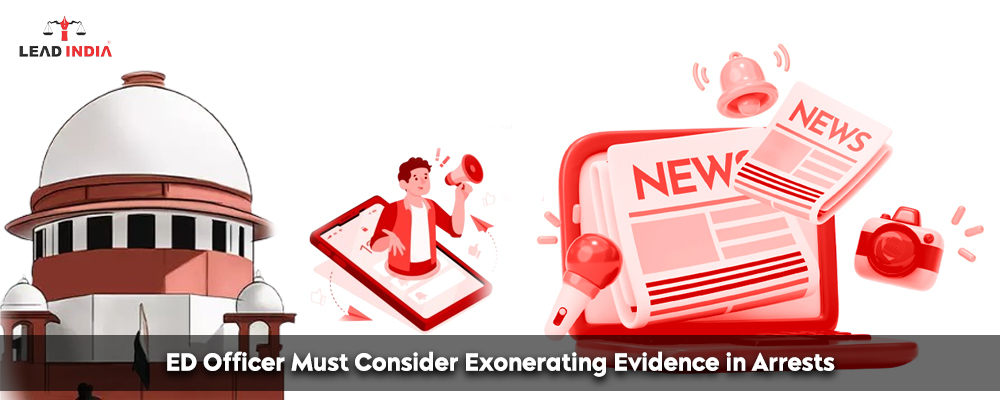A reasonable and equitable judicial system has its foundation in the requirement that law enforcement authorities take exonerating evidence into account prior to making an arrest. To preserve the credibility of the legal system, enforcement directorate (ED) officials in particular, who are essential in investigating financial offenses and enforcing economic regulations, have to stick to this idea.
SC’s Views About Kejriwal’s Argument
- Though deserving of attention, the arguments made in support of Arvind Kejriwal tend to refute the claims and evidence that the ED used to support its “reasons to believe.”
- They also take the form of assertions or inferences. The bench stated that they are up for debate since they plan to bolster or create a position based on conclusions derived from the evidence.
- According to Kejriwal, the “reasons to believe” do not address and assess “all” or “the entirety” of the content.
- It presents the exercise as being done in good faith, but in actuality, the motivations are false, and the exercise is carried out in a biased and preconceived way, referring to “incriminating” evidence.
Need A Legal Advice
The internet is not a lawyer and neither are you. Talk to a real lawyer about your legal issue

Defense of ED on arresting Kejriwal
- Due to the complexity of the investigation and the fact that this is a case of political corruption, impartial witnesses are not readily available, and the co-accused originally refused to identify and place blame on the major political players.
- Since the reliability of the witnesses will be examined at trial, the admissibility or validity of the approver’s and witnesses’ statements cannot be addressed in the current proceedings.
- According to the Enforcement Department, the “necessity to arrest” standard is met because Arvind Kejriwal has not shown up for nine summonses.
- The arrest is also a component of the investigation that aims to gather evidence and uncover pertinent information, as established in the case of P. Chidambaram v. Directorate of Enforcement.
Need for Exonerating Evidence
- Sustaining Justice and Fairness: Maintaining justice and fairness is the primary objective of each legal system. ED officers contribute to a more impartial and equitable investigation by taking into account evidence that rejects allegations. This approach ensures that individuals who are innocent are not being unfairly punished by eliminating inaccurate arrests and prosecutions.
- Maintaining Individual Rights: Everybody is entitled to a fair trial and an understanding of innocence until and unless it can be shown otherwise. These fundamental liberties are protected by ED officials through considering exonerating evidence. This procedure ensures that individuals are regarded with respect and dignity throughout the examination, in accordance with both international human rights norms as well as constitutional principles.
Repeating or expanding irregularity or illegality is not permissible under Article 14 of the Constitution’s equality or parity concept. “If a benefit or advantage has been awarded incorrectly, the recipient of the benefit or advantage cannot legitimately claim the same benefit due to the error or mistake. When the authorities have access to two or more courses, this approach could not be applicable. The aforementioned premise may be accepted under the doctrine of need and necessity for arrest. According to Section 45 (PMLA), the DoE’s judgment takes precedence when determining whether to issue bail.
Incorrect application of the law or capricious performance of a duty results in illegality. The court has the authority to overturn such a decision through judicial review. This wouldn’t be considered interference with the investigation or judicial overreach. The court’s sole responsibility is to guarantee that the law is enforced in conformity with the statute and the Constitution.
One can talk to a lawyer from Lead India for any kind of legal support. In India, free legal advice online can be obtained at Lead India. Along with receiving free legal advice online, one can also ask questions to the experts online free through Lead India.





 Talk to a Lawyer
Talk to a Lawyer